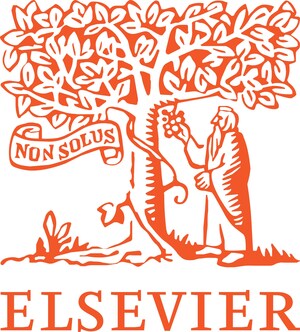
Making the Case for American Research: New study from Elsevier and Council of State Governments Shows Potential Value of Academic Research to State and Local Economic Development
ALBANY, New York, April 22, 2015 /PRNewswire/ --
The United States' long-term economic growth will be determined by its ability to encourage the research and development (R&D) that fosters innovation. Today, Elsevier, a world-leading provider of information solutions, and The Council of State Governments (CSG), the nation's only organization serving all three branches of state government, released America's Knowledge Economy: A State-by-State Review, a report that analyzes the research strengths of the United States, led by academic and private sector institutions known as knowledge economies.
The report will be unveiled by CSG National Chair Sen. Carl Marcellino (R-N.Y.) at a state capitol event in Albany, N.Y. By exploring the comparative research strengths of individual states, this report is designed to inform the debate about academic research funding as well as provide a framework for aligning states' policy goals with the expertise of its research institutions.
Using a variety of measures, including data from Scopus, Elsevier's proprietary abstract and citation database of peer-reviewed research literature, the report assesses where states have a comparative advantage in research and how they can drive innovation, attract jobs, and foster economic growth.
Highlights from the report, which you can read here, include:
- Nearly 50 percent of the total US research output was in the areas of medicine (28.7 percent) and engineering (17.4 percent).
- California has a national patent share more than three times the next closest state which is Texas. New York, Massachusetts and Washington round out the top five.
- New Jersey's total publications from corporate research are the highest in the country.
- Minnesota, Rhode Island and North Carolina are the top three states for medical research.
- New Mexico, Idaho and Virginia are the top three states in engineering.
- Maryland, North Carolina and Nebraska lead in biochemistry, genetics and molecular biology.
CSG will distribute the report to state officials, academic institutions and stakeholder organizations to underscore the value of state-based research as a contributing factor to economic growth potential.
"American competitiveness in the global marketplace starts with strong state economies. Our research capacity is world-class and, as such, is a vital asset to leverage," said David Adkins, executive director/CEO, CSG. "This report provides hard data that state and local municipalities can use to demonstrate the return on investment of academic research as well as to attract potential sources of new economic development opportunities."
"Few organizations recognize more deeply the value of higher education and the social and economic impact of academic research than Elsevier," said Brad Fenwick, senior vice president for global strategic alliances at Elsevier. "The report, in collaboration with CSG, uses Elsevier's unique data and analytics systems to showcase the knowledge economy that flows from universities to the economic well-being and future of each state. Universities not only create new knowledge, but also produce the next generation of highly educated workers who can put these discoveries to work."
---
About The Council of State Governments
The Council of State Governments is our nation's only organization serving all three branches of state government. CSG is a region-based forum that fosters the exchange of insights and ideas to help state officials shape public policy. This offers unparalleled regional, national and international opportunities to network, develop leaders, collaborate and create problem-solving partnerships.
About Scopus
Scopus is the largest abstract and citation database of peer-reviewed literature and features tools to track, analyze and visualize scholarly research. Its comprehensive database contains 55+ million items indexed from 21,000 titles from more than 5,000 publishers worldwide, ensuring broad interdisciplinary coverage in the fields of science, technology, medicine, social sciences and arts and humanities. Scopus was designed and developed with input from researchers and librarians and features direct links to subscribed full-text articles, other library resources and interoperability with applications such as reference management software. Scopus is part of the Elsevier Research Intelligence portfolio which includes the SciVal tools, the Pure system, rich data assets and custom Analytical Services.
About Elsevier
Elsevier is a world-leading provider of information solutions that enhance the performance of science, health, and technology professionals, empowering them to make better decisions, deliver better care, and sometimes make groundbreaking discoveries that advance the boundaries of knowledge and human progress. Elsevier provides web-based, digital solutions - among them ScienceDirect, Scopus, Elsevier Research Intelligence and ClinicalKey - and publishes over 2,500 journals, including The Lancet and Cell, and more than 33,000 book titles, including a number of iconic reference works. Elsevier is part of RELX Group plc, a world-leading provider of information solutions for professional customers across industries. http://www.elsevier.com
Elsevier Media contact
Ashley Stoney
[email protected]
+1-202-884-7379
CSG media contact
Kelley Arnold
[email protected]
+1-859-244-8000
SOURCE Elsevier





Share this article